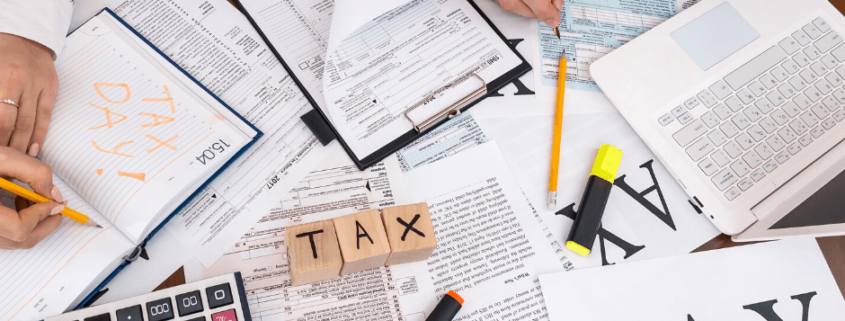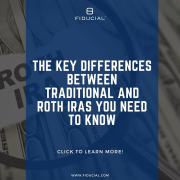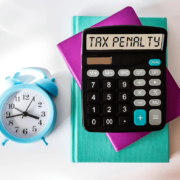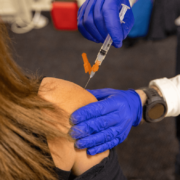The CARES Act Gives Businesses Big Tax Benefits
- Learn more about retroactive net operating loss carrybacks.
- Find out how retroactive 100% bonus depreciation for leasehold, restaurant and retail improvements may help you.
- Discover how Congress relaxed limitations on losses.
- Learn more about how limitations on deductible business interests relaxed.
Congress has created a stimulus package, the CARES Act, to help offset the financial damage to businesses during the COVID-19 crisis. They have restored the ability of businesses that suffer a loss to carry those losses back. And, to business owners’ relief, they may also recover taxes paid in prior years. Congress has relaxed limitations on business interest deductions, as well as the business loss limitation for larger businesses. The legislative package also made a long-awaited beneficial retroactive correction to treatment of qualified improvement property. These changes allow taxpayers to recover taxes paid in earlier years. Thankfully, this provides badly needed cash during these trying times.
The CARES Act restores net operating loss (NOL)
An NOL occurs when a business or individual with a business activity has more allowable tax deductions than taxable income. Consequently, this results in negative income or a net operating loss.
Prior to the tax reform that mostly became effective with 2018 returns (the Tax Cuts and Jobs Act – TCJA), NOLs generally carried back to the second prior year. Then, that year’s income reduced to zero, and as a result, the income tax for that year also reduced to zero. All of this allowed the taxpayer to claim a refund of the tax originally paid. If all the loss was not used, the remainder of the loss carried to the next succeeding year and forward until used up. But this only lasted for 20 years after the year of the original loss.
The TCJA revised the law to cut out the carryback of NOLs arising after 2017. The TCJA said that generally, NOLs were to be carried forward only. In addition, it removed the 20-year carryforward limitation. However, it did allow an NOL to offset no more than 80% of the carryforward year’s taxable income.
Now, the recently enacted CARES Act has restored NOL carrybacks for losses incurred in years 2018, 2019 and 2020. It has also extended the carryback period. For these years, NOLs can be carried back five years, and the loss is not subject to the 80% limitation.
Carry back and carry forward possibilities
Since the carryback provisions are retroactive to 2018, a taxpayer who had an NOL in 2018 should carry the loss back to 2013. They may do this by amending the 2013 return to recover tax paid in that year. They would then carry any excess loss forward to 2014. If there’s still loss remaining after amending the 2014 return, then carry the remaining loss forward to 2015 and amend the 2015 return, and so on. Did you incur a loss in 2019? Then the 2019 NOL carries back to 2014. If a 2018 loss already carried forward to the 2019 return, and the 2019 return has already been filed, you would need to amend it to carry the loss back to and amend the 2013 return. When the loss year is 2019, the carryback and amending process starts with the 2014 return.
Confused yet? This whole process can become a bit complicated depending on the prior years’ situation. But, complicated or not, your Fiducial representative will do a deep dive in preparation for any losses incurred in 2020 as a result of business restrictions or shutdown as a result of the COVID-19 crisis.

Qualified improvement property
The term “qualified improvement property” refers to leasehold, restaurant and retail improvements. An unintended provision of the 2018 tax reform established the recovery (depreciation) period for qualified improvement property to be 39 years. This made it ineligible for the 100% bonus depreciation deduction that only applies to business property with a recovery period of 20 years or less.
The CARES Act makes a technical correction to the original 2018 tax reform legislation. It designates qualified improvement property as 15-year recovery property. The property then qualifies for 100% bonus depreciation or, if preferred, a 15-year depreciable life. This can be a big benefit for businesses that have been adversely impacted by the crisis. Restaurants and retail stores that have lost so much business due to the epidemic’s economic fallout will especially benefit.
A taxpayer who made improvements to their eligible business property in 2018 can take advantage of this change by amending their 2018 return. This correction applies to all future years, so if the business made eligible improvements in 2019 and if you already filed the 2019 return, it can also be amended.
The CARES Act ends limitation on losses
The 2018 tax reform imposed business loss limitations on taxpayers except corporations. The CARES Act has made the loss limitation inoperable for businesses (including farming) through December 2020. Thus, this change applies retroactively to 2018 and allows taxpayers affected by the limitation to amend their 2018 returns. This also applies to 2019 and 2020. So, if you have already filed your 2019 return, you may amend it.
Limitation on deductible business interest
Also, as part of the 2018 tax reform, large businesses with incomes of $25 million ($26 million in 2019) or more were only allowed a business interest deduction of up to 30% of their adjusted taxable income. That limit changed to 50% for 2019 and 2020. Because income is expected to be lower in 2020, a special provision allows the 2019 adjusted taxable income to be used in figuring the 2020 interest deduction limit.
All of this may seem a bit overwhelming, but if any of these provisions apply to you, they can be very financially beneficial. Make sure to take note of them and get your past returns squared away in preparation for your 2020 tax return. Your Fiducial representative can help you and make sure you reap all of the benefits of these changes.
Call Fiducial at 1-866-FIDUCIAL or make an appointment at one of our office locations. Ready to book an appointment now? Click here. Know someone who might need our services? We love referrals!
For more small business COVID-19 resources, visit Fiducial’s Coronavirus Update Center to find information on SBA loans, tax updates, the Paycheck Protection Program, paid sick and family leave, and more.









